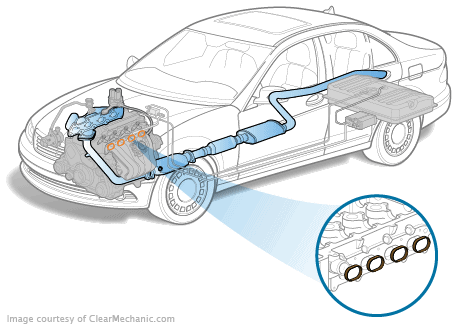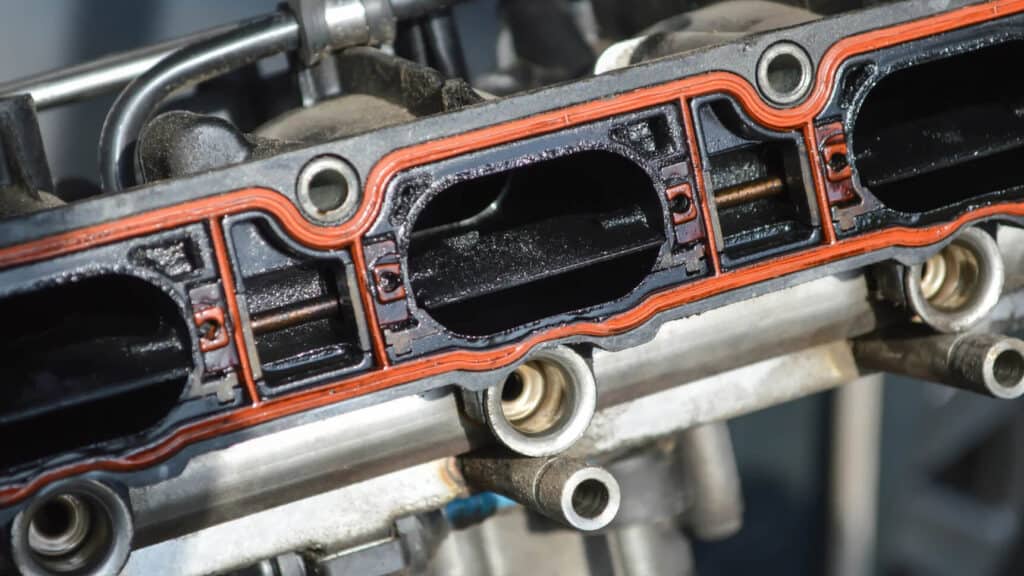Intake manifold gaskets are responsible for sealing the intake manifold to the engine cylinder head, which allows the proper mixture of air and fuel to enter the combustion chamber. If these gaskets fail, it can cause engine performance issues and even serious engine damage if left unaddressed. In this article, we will discuss the cost of replacing intake manifold gaskets and provide a guide on how to identify and address a faulty intake manifold gasket.

What are Intake Manifold Gaskets?
Intake manifold gaskets are seals that are installed between the intake manifold and the engine cylinder head. These gaskets are designed to prevent air, fuel, and engine coolant from leaking out of the intake manifold and into other areas of the engine.
How Much Will it Cost to Replace Intake Manifold Gaskets in Canada?
The cost of replacing intake manifold gaskets in Canada can vary depending on the make and model of the vehicle, as well as the extent of the damage. On average, the cost of parts and labor for intake manifold gasket replacement in Canada ranges from $500 to $1,500.
What are the Symptoms of Faulty Intake Manifold Gaskets?
• Reduced engine performance: A leak in the intake manifold gasket can cause a loss of engine power, leading to poor acceleration and reduced fuel efficiency.
• Rough idle: A vacuum leak resulting from a faulty gasket can lead to an uneven air-fuel mixture, causing the engine to idle roughly or stall.
• Engine misfires: Leaks in the intake manifold can cause an incorrect air-fuel mixture, leading to engine misfires and poor combustion.
• Check engine light: A damaged intake manifold gasket can trigger the check engine light due to vacuum leaks or misfires.
• Coolant leaks: If the gasket fails, coolant can leak externally or internally, potentially leading to engine overheating or damage.
• Engine overheating: Coolant leaks or poor combustion due to a faulty gasket can cause the engine to overheat.
• Oil contamination: A damaged gasket can allow coolant to mix with engine oil, leading to sludge formation and potential engine damage.
• Increased emissions: A leaking intake manifold gasket can result in higher emissions due to an incorrect air-fuel mixture and poor combustion.
How Long Do Intake Manifold Gaskets Last?
Intake manifold gaskets can last anywhere from 80,000 to 160,000 kilometers, depending on driving habits and the specific make and model of the vehicle. However, regular maintenance and inspections can help to identify and address potential issues before they become major problems.

How Do Intake Manifold Gaskets Become Defective?
• Normal wear and tear: Over time, the gaskets can wear down and lose their effectiveness, leading to leaks or failures.
• Poor-quality materials: Lower quality gaskets may not withstand the harsh engine environment and can fail prematurely.
• Improper installation: If the gaskets are not installed correctly, they may not seal properly, causing leaks or failures.
• Engine overheating: Excessive heat from an overheating engine can cause the gaskets to warp or break down, leading to leaks.
• Corrosion: Chemicals in the coolant or engine environment can cause the gaskets to corrode, reducing their effectiveness.
• Mechanical stress: Vibrations and pressure changes within the engine can cause the gaskets to wear down or crack over time.
How Can Faulty Intake Manifold Gaskets Affect Other Systems in the Car?
Faulty intake manifold gaskets can affect several other systems in the car, leading to decreased performance and potential damage. Here are some ways that faulty intake manifold gaskets can impact other systems:
1. Engine performance: A damaged gasket can cause air or coolant leaks, leading to an improper air-fuel mixture, engine misfires, and reduced engine power. This can result in poor acceleration, rough idling, and decreased fuel efficiency.
2. Emission control system: A faulty intake manifold gasket can cause the engine to run lean (too much air, not enough fuel), which can increase harmful emissions and potentially damage components such as the oxygen sensor, catalytic converter, or exhaust gas recirculation (EGR) system.
3. Cooling system: Coolant leaks from a damaged gasket can lead to engine overheating, which may cause further damage to the radiator, water pump, thermostat, or even the engine itself.
4. Ignition system: Engine misfires caused by a faulty intake manifold gasket can put extra stress on the ignition system, including the spark plugs and ignition coils, potentially causing premature wear or failure.
5. Electronic systems: A damaged intake manifold gasket can trigger the check engine light, and the engine control module (ECM) may try to compensate for the issues caused by the faulty gasket, potentially affecting other sensors and electronic components.
Is it Safe to Drive with Faulty Intake Manifold Gaskets?
Driving with faulty intake manifold gaskets can pose risks to both your vehicle and your safety. A damaged intake manifold gasket can lead to a variety of issues, including poor engine performance, increased emissions, and potential damage to other engine components. In some cases, you may still be able to drive the vehicle for a short distance, but doing so could worsen the problem and lead to more extensive repairs.
The primary concern with faulty intake manifold gaskets is the potential for air or coolant leaks, which can cause an improper air-fuel mixture, engine misfires, and reduced engine power. This can result in poor acceleration, rough idling, and decreased fuel efficiency, making it challenging to drive the vehicle safely and efficiently. Furthermore, coolant leaks can lead to engine overheating, which may cause further damage to the radiator, water pump, thermostat, or even the engine itself. In severe cases, driving with a damaged intake manifold gasket can cause irreversible damage to the engine, leading to costly repairs or even engine replacement. Therefore, it’s essential to address the issue as soon as possible and avoid driving the vehicle with faulty intake manifold gaskets to prevent additional damage and ensure your safety on the road.
How Can I Make My Intake Manifold Gaskets Last Longer?
Here are some tips to help extend the lifespan of your intake manifold gaskets:
• Follow the manufacturer’s recommended maintenance schedule
• Keep the engine coolant and oil levels in check
• Avoid excessive idling and aggressive driving
• Use high-quality gaskets and have them installed by a reputable mechanic

Conclusion: Intake Manifold Gasket Replacement
If you suspect that your intake manifold gaskets are faulty, it is important to have them inspected and replaced if necessary. A reputable mechanic can provide an accurate diagnosis and cost estimate for the replacement of intake manifold gaskets. By addressing the issue promptly, you can prevent further engine damage and ensure the longevity and performance of your vehicle.
Next Steps
Book Your Intake Manifold Gasket Replacement Service
The service most frequently booked by those who read this article is Intake Manifold Gasket Replacement. Uchanics’ expert technicians make the process even more convenient by bringing the service right to your doorstep. We perform this job at your home or office, covering over 40 cities in Ontario, including Toronto, Mississauga, Brampton, Oshawa, Ajax, Scarborough, and more. Our commitment to excellence has earned us more than 700 glowing 5-star reviews. Choose Uchanics for your Intake Manifold Gasket Replacement and experience unparalleled convenience and top-quality service.

